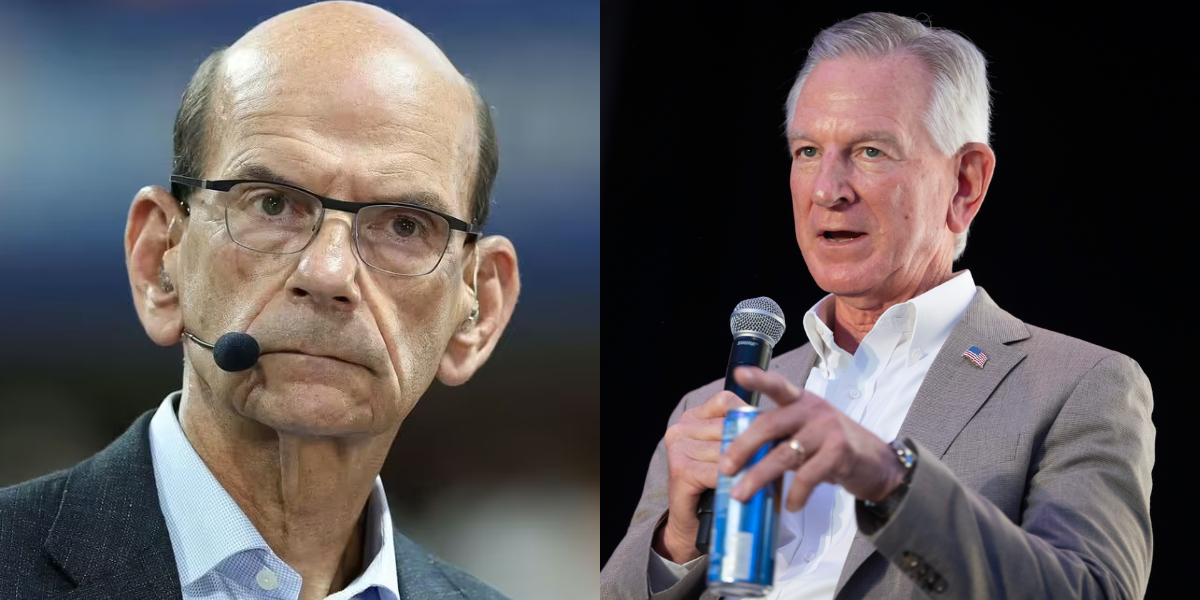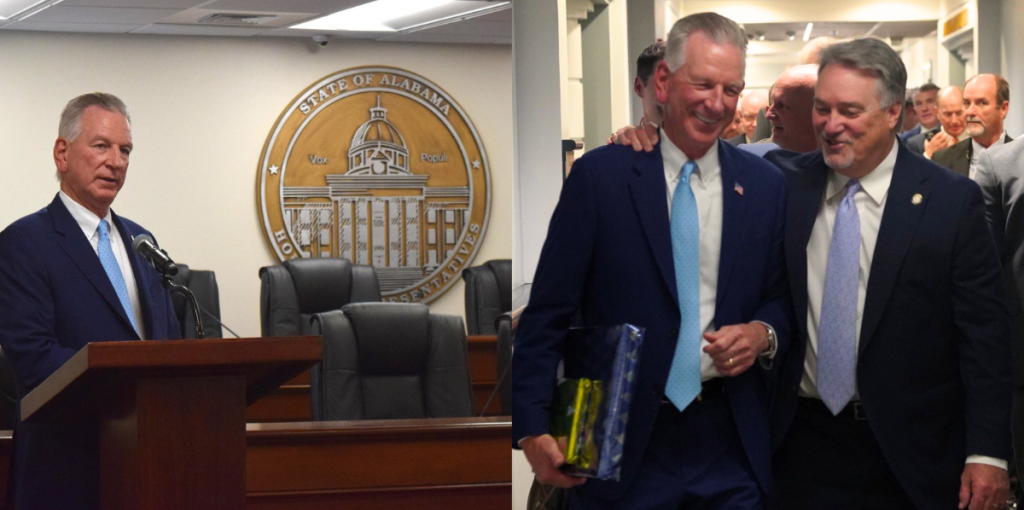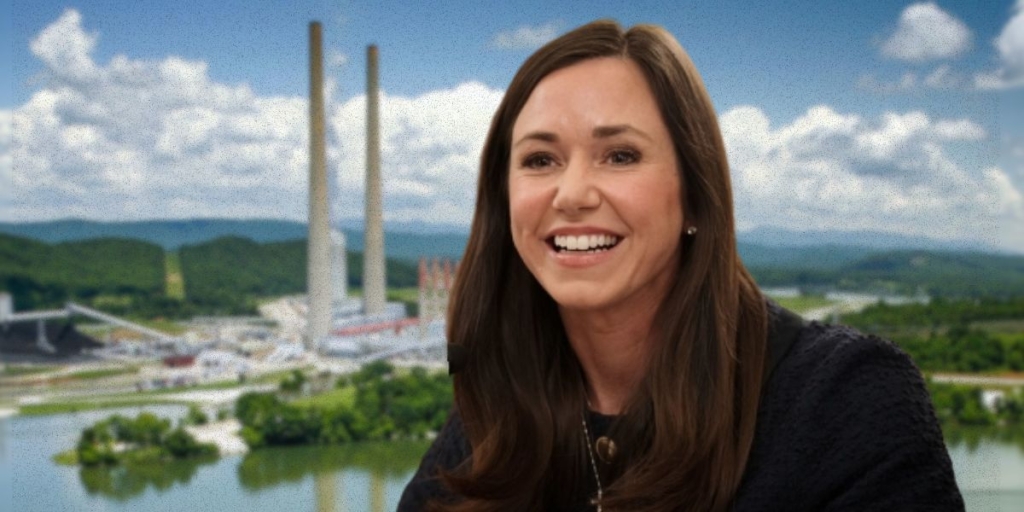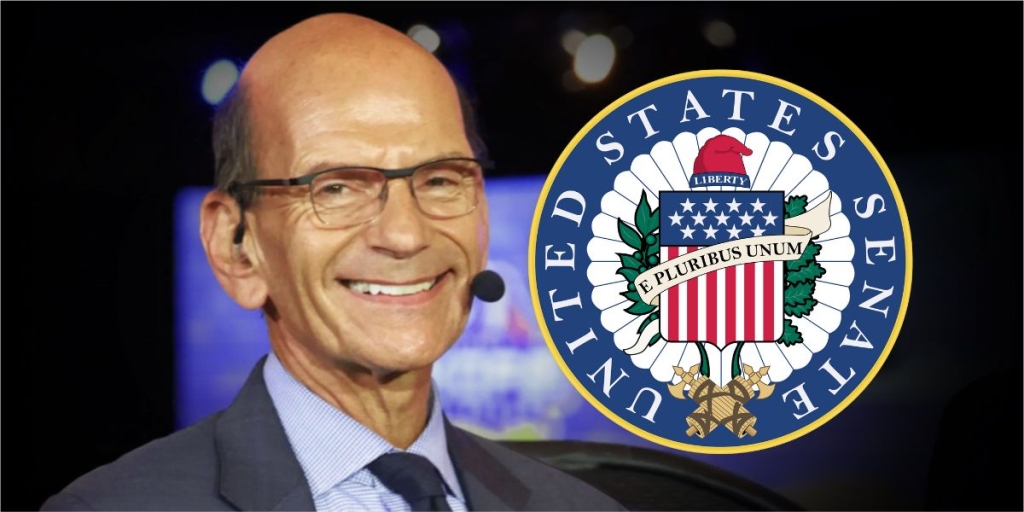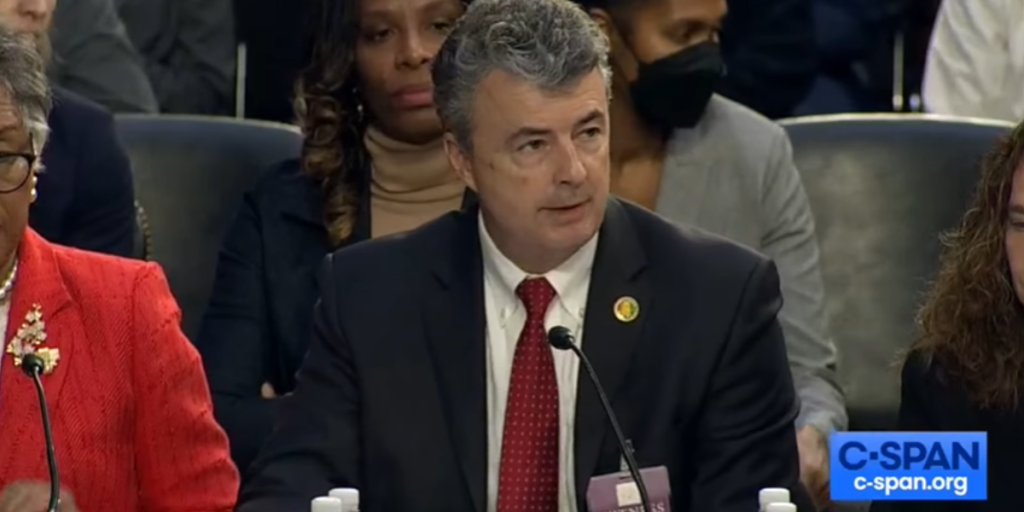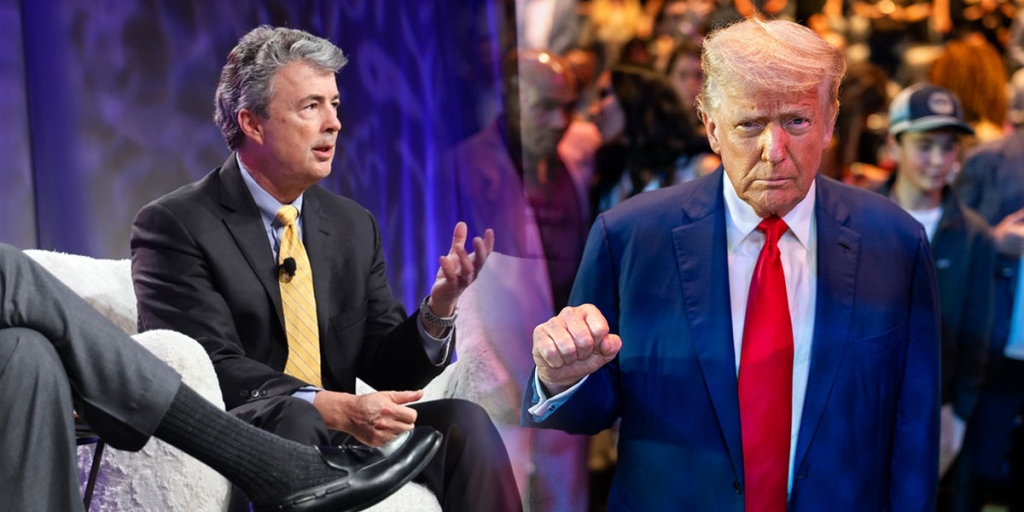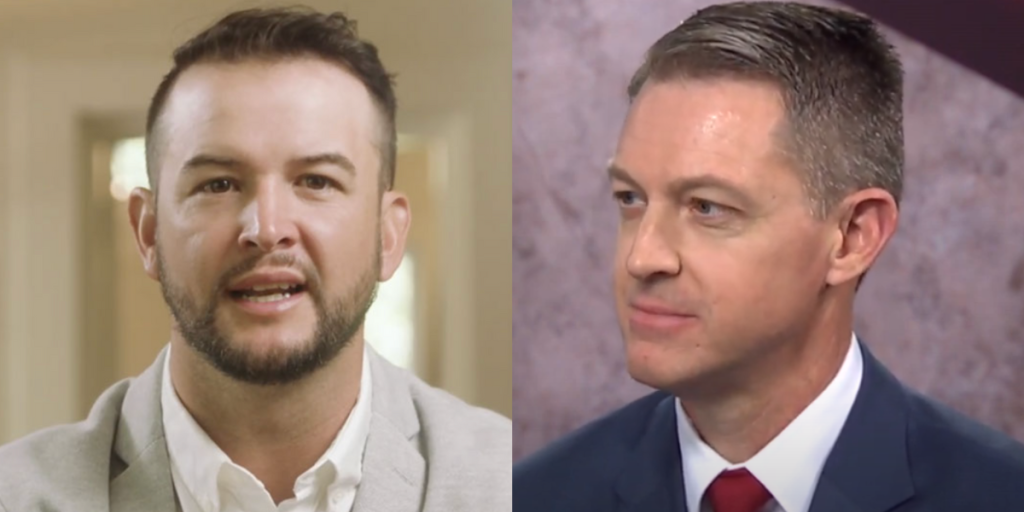The crowded race for Alabama’s open U.S. Senate seat could soon welcome another contender.
In an interview published by OutKick Monday morning, sports media personality Paul Finebaum revealed he is considering leaving ESPN, his employer since 2013, to run for public office.
The broadcaster described himself as a registered Republican who voted for Donald Trump during the 2024 presidential election.
Although he hasn’t yet committed to running for office, Finebaum said he is “considering” mounting a campaign for Alabama’s open U.S. Senate seat in 2026 following U.S. Senator Tommy Tuberville’s (R-Auburn) decision to run for Governor of Alabama rather than win slam-dunk re-election to the U.S. Senate.
Despite his long-standing reputation as a provocateur, Finebaum has generally circumvented the subject of politics throughout his career.
As he told OutKick, he neither wants to alienate members of his audience or infringe the policies of ESPN, a network he says encourages its employees to steer clear of political discussion.
According to Finebaum, however, he struggled to complete his show after the recent killing of Turning Point USA founder Charlie Kirk, prompting him to reflect on his priorities.
“I spent four hours numb talking about things that didn’t matter to me. And it kept building throughout that weekend,” Finebaum said. “I felt very empty doing what I was doing that day.”
Finebaum hopes to make his decision in “the next 30 to 45 days” — he has until January 23, 2026, the deadline for candidates to qualify in Alabama. The Republican primary will be held on May 19, 2026.
If Finebaum chooses to throw his hat in the ring, he will enter a competitive Republican field that includes Alabama Attorney General Steve Marshall, the current polling leader, U.S. Rep. Barry Moore (R-Enterprise), and former Navy SEAL Jared Hudson, among others.
The names of several notable sports figures have already been associated with the race.
Despite months of rumors to the contrary, recently-retired Auburn basketball coach Bruce Pearl declined to enter, and former Alabama quarterback A.J. McCarron is preparing a bid for either Lieutenant Governor or U.S. Senate — the three-time national champion has already lashed out at Finebaum, calling him a “dumbass” Monday afternoon.
Candidates will vie to replace Tuberville, a former Auburn football coach.
Unlike most of his potential competitors, Finebaum is not a native of the Yellowhammer State.
The broadcaster was born July 26, 1955, in Memphis, Tennessee, where he went on to graduate high school. Finebaum attended college at the University of Tennessee, earning a degree in 1978.
It wasn’t until 1980 he moved to Alabama to take a job at the Birmingham Post-Herald. He remained in the Magic City for over 30 years.
Although Finebaum spent the last decade-plus in Charlotte, returning to Alabama only this year, he describes the state as his home.
“Alabama has always been the place I’ve felt the most welcome, that I’ve cared the most about the people,” he told OutKick. “I’ve spoken to people from Alabama for 35 years and I feel there is a connection that is hard to explain.”
Most importantly, Finebaum is objectively on track to meet the lax residency requirements to run for U.S. Senate: prior to campaigning, he’ll have to prove he’s lived in Alabama for at least one day.
As long as he proves the Mountain Brook mansion he purchased in February is his primary home, Finebaum won’t be hampered by issues of residence.
Where does Finebaum fall on the political spectrum? Almost certainly closer to the center than the notoriously conservative Tuberville.
In July, Finebaum told The Athletic he votes for both parties and considers himself a “moderate” and a “fairly middle-of-the-road person.”
Finebaum also revealed he counts both Tuberville and former U.S. Senator Doug Jones, a Democrat, as friends.
In 2016, Finebaum compared then-Michigan coach Jim Harbaugh to Trump, who had become the frontrunner for the Republican presidential nomination after a series of incendiary debate performances. He accused both men of deploying provocative language as an attention-seeking device.
“It’s like [Marco] Rubio and [John] Kasich and [Jeb] Bush all reacting to Donald Trump. That’s what he wants,” Finebaum said. “And the Donald Trump of college football, Jim Harbaugh, wants [SEC coaches and officials] to get their panties in a wad and make him an even bigger story.”
In 2017, the broadcaster blasted the president to ESPN’s First Take panel, saying Trump “thinks he’s the smartest person in every room” and “behaves like a child.”
Finebaum challenged Trump to hold a town hall with representatives from the sports world about the issue of football players kneeling during the national anthem, going on to claim he’s “never seen a leader act with [Trump’s] level of immaturity.”
But in 2019, Finebaum attempted to interview the president prior to November’s game between No. 1 LSU and No. 2 Alabama. He was allegedly shot down by ESPN, which he said cited its ‘no politics’ rule.
Finebaum told OutKick the incident represented a “turning point” for him, as he was denied a chance to conduct an interview he saw as having nothing to do with politics.
“It was just about the idea of going to the White House to interview the President of the United States,” Finebaum said. “It wasn’t about politics; it was about the game that he was going to attend, the biggest game of the year in college football.”
Finebaum now says that it would be ”impossible to tell [Trump] no” if the president pushed him to jump into the race.
“There’s no way I could,” Finebaum said. “I would tell him yes.”
Celebrity senatorial candidates have suffered high-profile defeats both in recent years — in 2022, former Heisman winner Herschel Walker and television presenter Mehmet Oz lost general elections in Georgia and Pennsylvania, respectively — and over the course of American history.
According to a 2024 study, celebrities who ran for federal office from 1964 to 2022 lost 72% of the time. They fared particularly poorly when matched up against experienced politicians, an unwelcome sign for Finebaum.
In a state like Alabama, however, where the Republican primary is the de facto general election, a candidate like Finebaum may be more viable.
Take Tuberville, for example: in 2020, the political newcomer roared past former U.S. Senator Jeff Sessions, denying him the seat he once held.
However, Tuberville rode Trump’s endorsement to victory, marching in lockstep with the president; if Finebaum doesn’t secure Trump’s coveted support, he’ll have to chart his own path.
Despite boasting a greater net worth than his potential opponents, Finebaum also isn’t guaranteed a fundraising advantage: the risk-averse donor class is generally hesitant to back political novices, famous or not.
Other than his experience in front of crowds and cameras, Finebaum possesses at least one significant political advantage: name recognition.
Many lesser-known candidates spend much of their campaigns simply introducing themselves to voters. Finebaum will have to do no such thing.
Although Alabama voters might not necessarily like the often-acerbic broadcaster, they’ve certainly heard of him.
Charles Vaughan is a contributing writer for Yellowhammer News.




